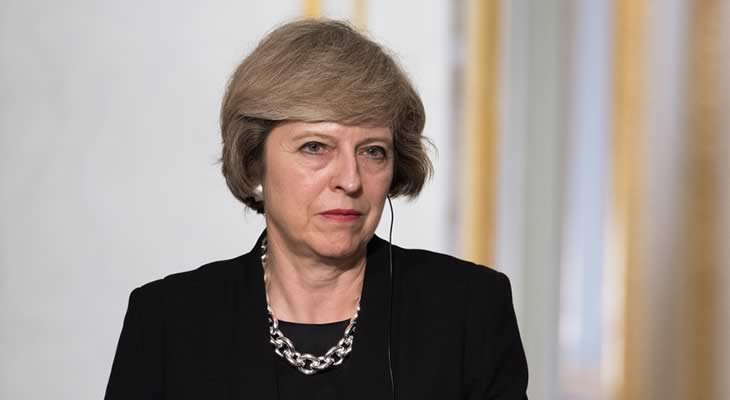Updated 16:34 GMT 09/11/2017:
The Pound fluctuated on Thursday as ex-International Development Secretary Priti Patel was replaced with Penny Mordaunt, another known Brexit campaigner.
This weighed on the Pound as markets hoped that a ‘soft Brexit’ supporter would take Patel’s place on the role.
Overall, the Pound New Zealand Dollar exchange rate remained near a three-week-low of 1.8795 on Thursday.
Demand for the New Zealand Dollar was boosted by the morning’s Reserve Bank of New Zealand (RBNZ) policy decision.
Acting RBNZ Governor Grant Spencer expressed confidence with New Zealand’s economic and inflation outlooks.
He brought the forecast for the next RBNZ rate hike forward from Q3 2019 to Q2 2019 and stated he believed the new government would not have a major impact on monetary policy, despite its intentions to adjust the bank’s mandate.
[Published 15:46 08/11/2017]
After edging higher for most of the week so far, the Pound New Zealand Dollar exchange rate fell on Wednesday due to rising concerns about the strength of the UK Conservative Party. The ‘Kiwi’ strengthened as investors anticipated the Reserve Bank of New Zealand (RBNZ) policy decision.
GBP NZD opened this week at the level of 1.8933 and climbed to a high of 1.9089 on Wednesday morning, before tumbling down to the level of 1.88.
Pound (GBP) Outlook Filled with Political Uncertainties
The Pound had been strengthening for most of the week, due to speculation that the Brexit process would soon begin to accelerate and that the chances of UK-EU trade talks taking place within the coming months were rising.
Optimism and signs of preparation from high-ranking EU officials caused Pound investors to highly anticipate the next round of UK-EU negotiations, hoping for signs that the first phase of talks is nearing an end.
However, due to fresh domestic political uncertainties, Sterling investors have once again become anxious about how the Brexit process will unfold.
Over the past week, multiple UK officials have become embroiled in scandal. A sexual harassment scandal engulfed parliament and led to resignations.
Then on Wednesday, UK International Development Secretary Priti Patel’s role appeared to be under threat when it was reported that she had had undisclosed meetings with high-ranking Israeli officials during a private holiday.
Markets are now even more concerned that if the Conservative Party continues to lose key cabinet members, this could undermine UK Prime Minister Theresa May’s political strength and negatively impact the success of Brexit negotiations.
Recent UK ecostats have been low influence and weak, and certainly haven’t given Pound investors any reason to buy the British currency.
Overall, with concerns about Britain’s slowing economy and fresh political concerns regarding the government and Brexit, Sterling has been unappealing and has been sold from its highs.
Sterling may have an opportunity to surge towards the end of the week though, as the next round of Brexit negotiations will take place in Brussels and UK production data will be published.
Any signs from Brexit discussions that negotiations are speeding up and that phase one of talks could reach an end soon would considerably boost Pound demand.
The second phase of talks will supposedly involve preliminary negotiations for post-Brexit UK-EU trade. If markets are given reason to believe that this phase could happen over the next couple of months, ‘cliff-edge’ hard Brexit concerns will fade and the Pound outlook will surge.
If Brexit talks appear to remain stagnated, Sterling strength will be limited. The Pound could be supported if Friday’s UK production stats impress however.
New Zealand Dollar (NZD) Investors Await Reserve Bank of New Zealand (RBNZ)
While the New Zealand Dollar was able to benefit from Pound weakness on Wednesday, its gains were limited as ‘Kiwi’ traders awaited Thursday’s Reserve Bank of New Zealand (RBNZ) policy decision.
On top of this, there have been little domestic reasons to buy the New Zealand Dollar in recent sessions. New Zealand’s Q4 business inflation expectations report slipped from 2.1% to 2%.
Risk-sentiment has been mixed, too. Prices of New Zealand’s most lucrative commodity dropped in the latest Global Dairy Trade (GDT) auction.
Dairy prices plunged -3.5% in the first GDT auction of November, bringing the price index down to its worst level since early April.
Stronger prices in other commodities like oil helped to support the risky commodity-correlated ‘Kiwi’, but overall its gains have been largely due to Pound weakness and its strength is highly limited.
Looking ahead, it’s possible that the Reserve Bank of New Zealand’s monetary policy decision on Thursday could have an impact on the New Zealand Dollar outlook. The bank is expected to leave monetary policy frozen but the bank’s tone could influence trade.
Since the new Labour-NZ First coalition government took power, the government has indicated that it is looking into adjusting the central bank’s mandate in some way.
This caused significant market uncertainty, but NZ Finance Minister Grant Robertson did reassure markets that there were no plans to alter the way the bank handles the domestic currency.
Instead, the focus was likely to be on making maximising employment a goal of monetary policy.
Still, if the bank’s policy decision on Thursday indicates that uncertainty remains over the new government, the New Zealand Dollar is likely to weaken.
GBP NZD Interbank Rate
At the time of writing this article, the Pound New Zealand Dollar exchange rate trended in the region of 1.8905. The New Zealand Dollar to Pound exchange rate traded at around 0.5288.


Comments are closed.